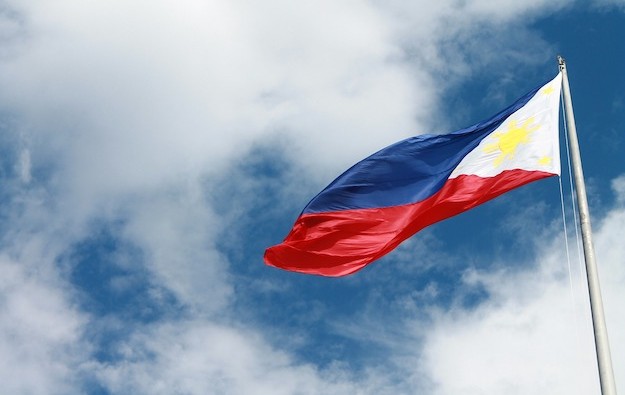Philippines on FATF grey list, working on junket controls
Jun 28, 2021 Newsdesk Latest News, Philippines, Top of the deck

The Paris-based watchdog the Financial Action Task Force (FATF) has added the Philippines to its “grey list” of jurisdictions that it regards need increased monitoring in relation to risk of financial crimes. The announcement was made on Friday.
The Financial Action Task Force said in its latest update: “When the FATF places a jurisdiction under increased monitoring, it means the country has committed to resolve swiftly the identified strategic deficiencies,” in its anti-money laundering (AML) and combatting the financing of terrorism (CFT) framework “within agreed time frames and is subject to increased monitoring”.
The body added that the Philippines already had made this month “a high-level political commitment” to work with the FATF and the Asia/Pacific Group on Money Laundering, a regional watchdog.
The country’s pledge of cooperation included “demonstrating that supervisors are using AML/CFT controls to mitigate risks associated with casino junkets,” said the FATF in its release. The document mentioned seven other areas – not directly linked to casino operations – featured in the AML/CFT action plan to be implemented by the Philippines.
The country has a significant and growing casino and online gaming sector that in pre-pandemic times sought customers from across the Asia-Pacific region and beyond.
In its Friday release, FATF acknowledged that, since the completion of its mutual evaluation report in 2019, the Philippines had “made progress on a number of… recommended actions to improve technical compliance and effectiveness, including by addressing technical deficiencies on targeted financial sanctions.”
According to a research paper from the International Monetary Fund, published in May, a country’s addition to the FATF grey list can result in “large and statistically significant reduction in capital inflows”. Countries on the grey list need to submit progress reports to the FATF three times a year.
Commenting on the Philippines’ addition to the FATF grey list, the country’s Anti-Money Laundering Council stated that “the mere identification of the Philippines as having ‘jurisdiction under increased monitoring’ with serious AML/CTF deficiencies does not automatically mean imposition of countermeasures.”
The council added in a press release dated Friday: “It is only when the country fails to meet the deadlines will the FATF call on countries to impose countermeasures against the Philippines.”
The Philippine body stated that the “relevant government and law enforcement agencies’ sustained pledge” to implement the action plan recommended by FATF “within the prescribed timelines” would be essential to the country’s removal from the list.
In a highly-publicised incident in 2016, some of the US$81 million in money stolen from the Bank of Bangladesh via an online heist, passed through gaming operations at several Philippine casinos before mostly disappearing.
One of the venues through which some of the money was allegedly funnelled – according to statements by investigators – was Solaire Resort and Casino in Manila, promoted by a unit of Bloomberry Resorts Corp. Litigation in relation to that incident has gone on over a period of years since.
From 2000 until February 2005, the Philippines was on an FATF list of “non-compliant countries and territories” in relation to financial monitoring – also known as a “blacklist” – according to publicly available information from the FATF.
In January, the Philippine Senate and House of Representatives respectively approved amendments to the country’s Anti-Money Laundering Act, known as the AMLA, adding Philippine Offshore Gaming Operators (POGOs) and their “service providers” as “covered persons” under the legislation. One of the stated aims of that move was to avoid getting on the FATF’s grey list.
Related articles
-
 China embassy in Manila welcomes POGO...
China embassy in Manila welcomes POGO...Jul 26, 2024
-
 RGB says ‘unaffected’ by...
RGB says ‘unaffected’ by...Jul 26, 2024
More news
-
 Donaco EBITDA up y-o-y to above US$4mln...
Donaco EBITDA up y-o-y to above US$4mln...Jul 26, 2024
-
 HK listed Palasino upgrades Czech...
HK listed Palasino upgrades Czech...Jul 26, 2024
Latest News
Jul 26, 2024
Border-casino operator Donaco International Ltd has achieved a 164.17-percent year-on-year increase in its latest quarterly group earnings before interest, taxation, depreciation and amortisation...Sign up to our FREE Newsletter
 (Click here for more)
(Click here for more)
Pick of the Day
”We’ve got more traction outside of Macau at the moment. But Macau’s going be a bigger focus for us”
David Punter
Regional representative at Konami Australia
Most Popular
 Sheraton brand to exit Londoner Macao, to be Londoner Grand July 25, 2024
Sheraton brand to exit Londoner Macao, to be Londoner Grand July 25, 2024  Macau regulator probes unlicensed gaming agents July 24, 2024
Macau regulator probes unlicensed gaming agents July 24, 2024  Philippines gives 20k aliens in POGOs 60 days to leave July 25, 2024
Philippines gives 20k aliens in POGOs 60 days to leave July 25, 2024  Philippines-listed DigiPlus says not affected by POGO ban July 24, 2024
Philippines-listed DigiPlus says not affected by POGO ban July 24, 2024  Sands China 2Q EBITDA down q-o-q amid low hold, renovation July 25, 2024
Sands China 2Q EBITDA down q-o-q amid low hold, renovation July 25, 2024





